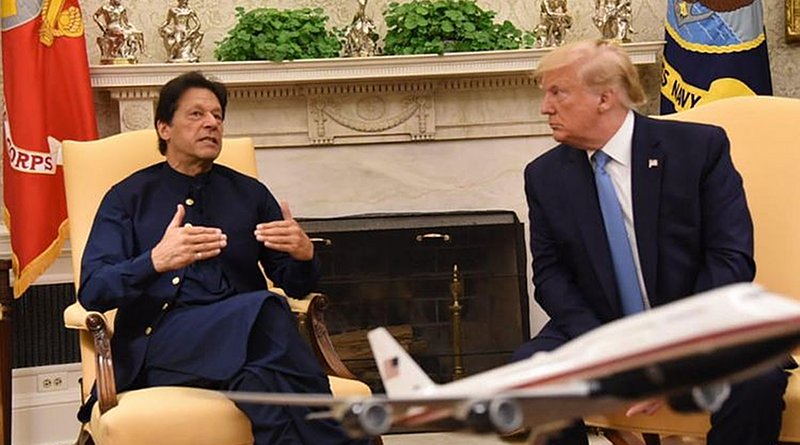Trump’s Second Indictment: A Lesson In Accountability For Imran Khan – OpEd
By Dr. Sahibzada Muhammad Usman
As former President Donald Trump faces a second indictment in the United States, a wealth of political and legal lessons unfolds. For Pakistani Ex-Prime Minister Imran Khan, these lessons, borne out of democratic principles and the rule of law, can provide significant insights into the nuances of leadership and the responsibility it holds.
In June 2023, Donald Trump was federally indicted for the second time on charges of mishandling classified documents, marking the first time in U.S. history that a former President faced such charges. The indictment follows his two impeachments in 2019 and 2021, when he was charged with abuse of power and obstruction of Congress, and incitement of insurrection, respectively. According to the indictment, Trump mishandled classified documents, which he allegedly took to his Mar-a-Lago resort. A special counsel’s comprehensive investigation led to the unearthing of a key piece of evidence – an audio recording of Trump from July 2021 discussing a classified military planning document. Notably, Trump acknowledged the document’s classified status in the recording, directly contradicting his claim of having declassified the documents he retained after leaving the White House.
Adding another twist to this saga, Trump may face his accuser, President Joe Biden, in the 2024 general election. This unprecedented situation could fuel Trump’s narrative of being a victim of politicized justice, further deepening the political divide in the country.
Trump’s indictment also casts a shadow over the Republican party’s strategy for the 2024 Presidential race. As the front-runner for the Republican nomination, Trump’s legal troubles could complicate the party’s path to the White House. However, it also provides an opportunity for other potential Republican candidates to gain prominence.
The first lesson for Khan lies in the nature of Trump’s impeachment and indictment: no one is above the law, not even the President. Regardless of their stature, leaders are expected to uphold the nation’s laws and constitution. Violations, as seen in Trump’s case, can lead to significant political and legal consequences, emphasizing that power cannot be used as a shield against accountability. This is a cornerstone of a healthy, functioning democracy.
The impeachments and indictment of Trump illustrate the importance of democratic processes and institutional independence. The U.S. Constitution provides Congress with the power to impeach and potentially remove a sitting president, reflecting a system of checks and balances designed to prevent the abuse of power. For Khan, this underscores the importance of maintaining the independence of Pakistan’s institutions, including the judiciary, the media, and other democratic institutions.
Another lesson is the importance of transparent and ethical leadership. Trump’s impeachment was significantly driven by his attempt to seek foreign interference in the U.S. elections and his actions leading to the violent insurrection at the Capitol. Leaders must ensure their actions and decisions are guided by the principles of integrity, honesty, and transparency. They should serve the best interests of the nation and its people, not personal or political gain.
The indictment also emphasizes the responsibility of leaders to protect national security. Mishandling classified information can put a nation’s security at risk, a grave responsibility that falls on a leader’s shoulders. As the Ex-Prime Minister of Pakistan, a nation with its own set of complex security concerns, Khan should take note of the severe implications that negligence can have on national security.
Furthermore, Trump’s trials highlight the role of public discourse and the media in holding leaders accountable. In the wake of Trump’s impeachment and indictment, public opinion and media scrutiny played a crucial role in shaping the narrative and ensuring transparency. This lesson is particularly relevant for Khan, given the frequent tensions between his party and the media. Freedom of the press and robust public discourse are essential components of a democratic society and should be respected and protected.
Finally, as Donald Trump faces a second indictment, the lessons for Imran Khan and other world leaders are clear. Upholding the rule of law, safeguarding democratic processes, maintaining institutional independence, demonstrating ethical leadership, protecting national security, and respecting freedom of the press are non-negotiable responsibilities of any leader. Failure to adhere to these principles can lead to significant consequences, both legally and politically. As global politics continues to evolve, the value of these lessons remains timeless.
Dr. Sahibzada Muhammad Usman, Research Scholar and Academic; Ph.D. in Political Science at the University of Pisa, Italy. Dr. Usman has participated in various national and international conferences and published 30 research articles in international journals.

